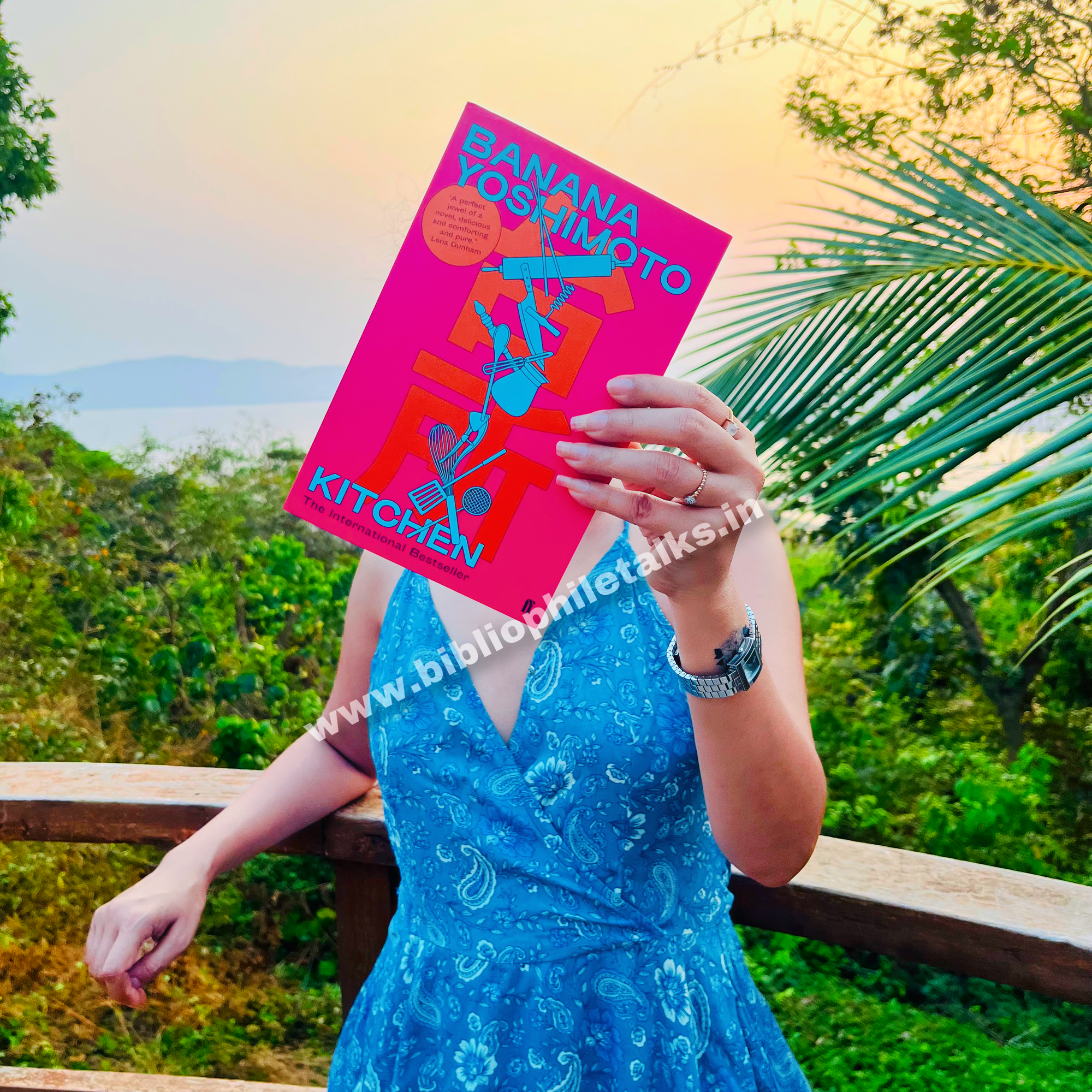KITCHEN

𝐊𝐢𝐭𝐜𝐡𝐞𝐧
𝐁𝐲 𝐁𝐚𝐧𝐚𝐧𝐚 𝐘𝐨𝐬𝐡𝐢𝐦𝐨𝐭𝐨
𝐏𝐮𝐛𝐥𝐢𝐬𝐡𝐞𝐫: 𝐅𝐚𝐛𝐞𝐫 & 𝐅𝐚𝐛𝐞𝐫 (𝟐𝟎𝟏𝟖)
𝐏𝐚𝐩𝐞𝐫𝐛𝐚𝐜𝐤: 𝟏𝟔𝟎
𝐏𝐮𝐛𝐥𝐢𝐬𝐡𝐞𝐝: 𝟑𝟎𝐭𝐡 𝐉𝐚𝐧𝐮𝐚𝐫𝐲 𝟏𝟗𝟖𝟖 (𝟏𝐬𝐭 𝐏𝐮𝐛𝐥𝐢𝐬𝐡𝐞𝐝)
𝐆𝐞𝐧𝐫𝐞: 𝐂𝐥𝐚𝐬𝐬𝐢𝐜 𝐅𝐢𝐜𝐭𝐢𝐨𝐧
𝐉𝐚𝐩𝐚𝐧𝐞𝐬𝐞 𝐋𝐢𝐭𝐞𝐫𝐚𝐭𝐮𝐫𝐞
𝐑𝐞𝐚𝐝𝐢𝐧𝐠 𝐘𝐞𝐚𝐫: 𝟐𝟎𝟐𝟒
"Kitchen" is a poignant tale unveiling the life of Mikage Sakurai, a young woman left adrift after the passing of her grandmother. Facing solitude, Mikage receives a gracious invitation from her friend, Yuiche Tanabe, to reside with him and his transgender mother, Erika. Embracing this gesture, Mikage discovers an unexpected sense of belonging within this newfound family. As she navigates through various losses, Mikage finds solace and a renewed spirit in the warmth of kitchens and the art of cooking.
In the companion story, "Moonlight Shadow," we are introduced to Satsuki, a woman grappling with the sudden loss of her boyfriend, Hitoshi, in a tragic accident. Alongside her grief, we encounter Hitoshi's younger brother, Hiirage, who not only mourns the loss of his brother but also his girlfriend in the same tragic event. Coping with his sorrow in peculiar ways, Hiirage's path diverges from Satsuki's, who seeks solace in the rhythmic tranquillity of running. It is during one of her runs that Satsuki encounters Urara, a mysterious figure who introduces her to a world of enigmatic and magical occurrences, altering her perception of life and loss.
Regarding Yoshimoto's writing, I find myself at a crossroads. There are moments where the prose feels just right, yet others that seem slightly askew. I'm unsure whether the writing itself or the translation left me unconvinced. Or perhaps this blend of completeness and incompleteness is meant to be read in this way.
Kitchen doesn't rely heavily on plot twists and turns. Those seeking a fast-paced, plot-driven novel might find themselves disappointed. At times, I sensed the translation might have faltered, although I can't say for certain if it was intentional.
In conclusion, I feel that Kitchen's translation is slightly flawed. It's a fast-paced and short read. Those who enjoy reading about life philosophy can give it a try, but I don't think it would be as enjoyable for those who read books purely for fun.
My Rating:
3.5/5
NOTE: In this blog, the CONTENT and PICTURES are owned by Samayra Singh, and cannot be used or distributed without permission. Strict legal action will be taken against any infringement.